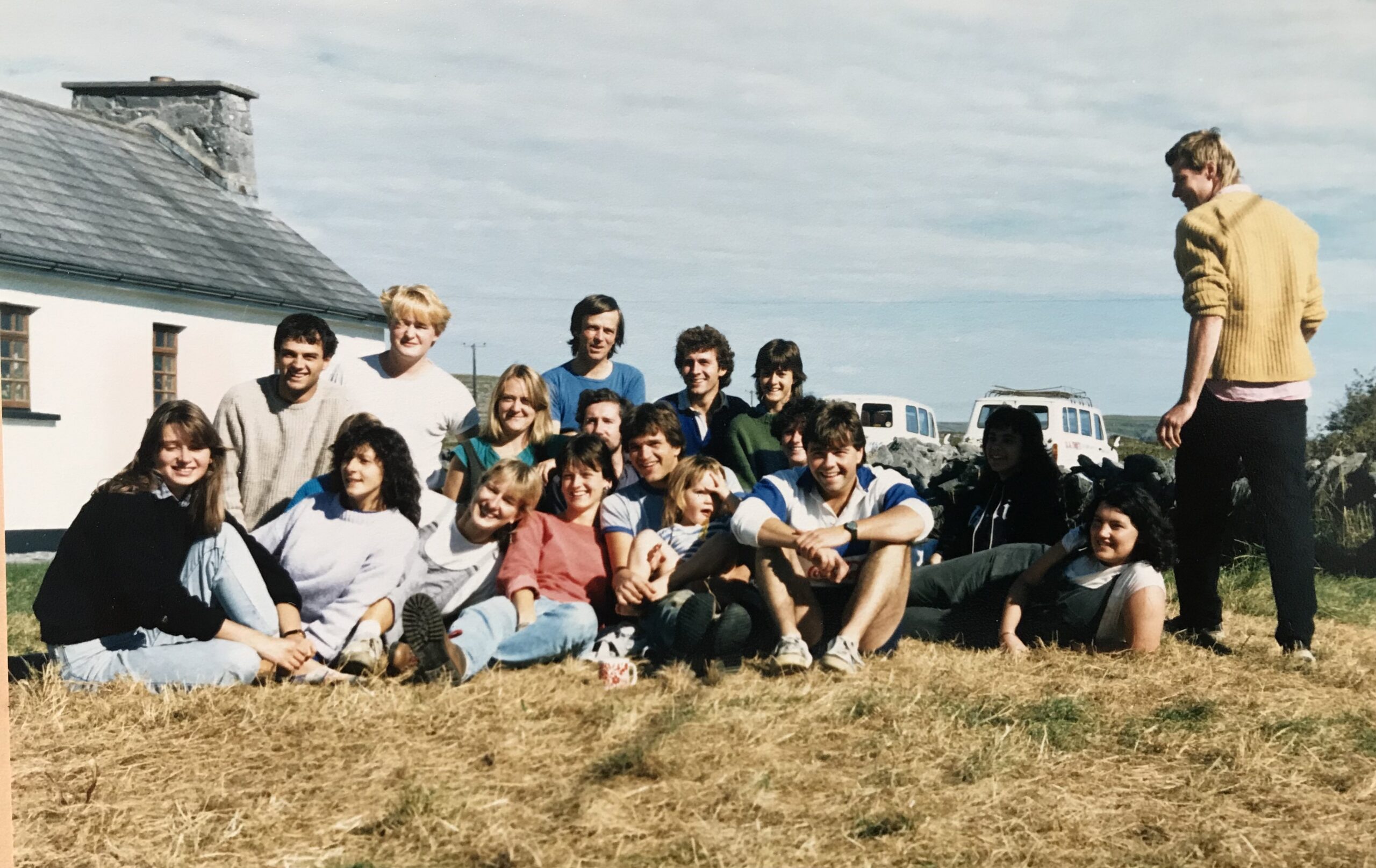
I was hooked on DEV from the day of our group visit for DEV course applicants prior to starting the course in October 1983. The Lecturers, Nick Abel and Michael Stocking I think spoke with infectious enthusiasm about the course and the work of Lecturers through the Overseas Development Group (ODG). I hadn’t been beyond Britain so it was great to know I would meet people from across the world and learn how development principles may apply to a variety of countries
DEV was my first introduction to studying Economics. For me, the take away message has been that Policy Makers don’t really know what effect their policies will have until they are introduced in the real world setting (as illustrated by Britain’s short-lived Truss Government in 2022). The basic theories of Capitalism (in Britain in particular) have been useful in the context of EU Labour legislation (The Working Time Directive, Free Movement of Labour, etc.) and Britain’s National Minimum Wage and Living Wage etc.
Studying Natural Resources came much more naturally as I had spent so much time in the natural environment whilst growing up. Through DEV, the fundamental importance of capturing and managing any available water resources to support the growing of trees and food crops across the world, became obvious.
The control of certain plant genetics by multi-national corporations and development of seeds which could grow into plants which would only produce sterile seeds, preventing subsistence farmers from saving seed to grow the next crop, was and important lesson in capitalist economics.
Practical work on the DEV farm was always enjoyable. We learned ways to measure the flow of a river and how to examine soil profiles and how to test the (clay/silt/sand/organic matter) content of a soil sample back in the Laboratories.

Don Saunders adding green fluorescent dye to the Yare to facilitate flow rate measurement
The most unique thing about DEV for me was my “Year Out” between my second and third years, in which I did a work placement in Tanzania, arranged through Frank Ellis. As a Research Assistant with a Development Consultancy, I supported a range of projects funded by, for example, The World Bank and The Food and Agriculture Organisation. I also learned about “Incentive Goods” through a project which imported bikes from the Netherlands to enable workers to cycle to work, saving valuable time from their previous walk to work. (I think their employer gradually deducted sums from their pay until the bikes were paid off?). Project Evaluation revealed that the Workers preferred to sell the bikes new/upfront (perhaps at a higher price) and use the proceeds to fund whatever was their priority. A useful lesson to really understand peoples’ needs and wants before implementing “solutions”.
For my dissertation, I was concerned with the huge issue of deforestation linked to burning wood to cook food, causing women and children to walk further and further to obtain wood. I therefore chose to study wood and charcoal-burning cook-stoves in Tanzania and Kenya. The latter involved a 24 hour coach journey from Dar es Salaam, Tz to Nairobi, Kenya for a period of field study. There were frequent fuel shortages when the Tanzanian Government ran out of Foreign Exchange and there was a delay before it could buy in the next tanker of oil to be refined. On the return journey from Nairobi, the coach ran out of fuel and we sprawled across the road at dawn waiting for someone to return with a large can of fuel to get us to the next fuel station. This was my first close encounter with a scorpion as a commotion broke out around me and we all jumped up as someone pointed out the scorpion running towards me. No harm done
After Tanzania I went to London to earn money for three months to fund back-packing around India. I had been due to meet up with Viv Coleman who had also been on a work placement – hers on a forestry project in Nepal. Due to unforeseen circumstances (including catching Typhoid in Nepal and having to be tracked down to be isolated back at UEA), she was unable to join me.
On arrival at Delhi Youth Hostel I soon made friends and after getting familiar with Delhi, I bought a month’s Indrail Pass and travelled through most of India’s States by train, stopping off for a few days in major cities and tourist sites to get a feel for regional differences. Monsoon flooding in the East of India caused one train journey to be diverted hundreds of miles inland. My travels in India were where I learned valuable Self Reliance.
Immediately prior to my third year of DEV we had the wonderful opportunity to do ‘field studies’ in County Clare in southern Ireland, with David Gibbon. We did group work and individual projects, I chose rural housing, which became a key part of my work subsequently.
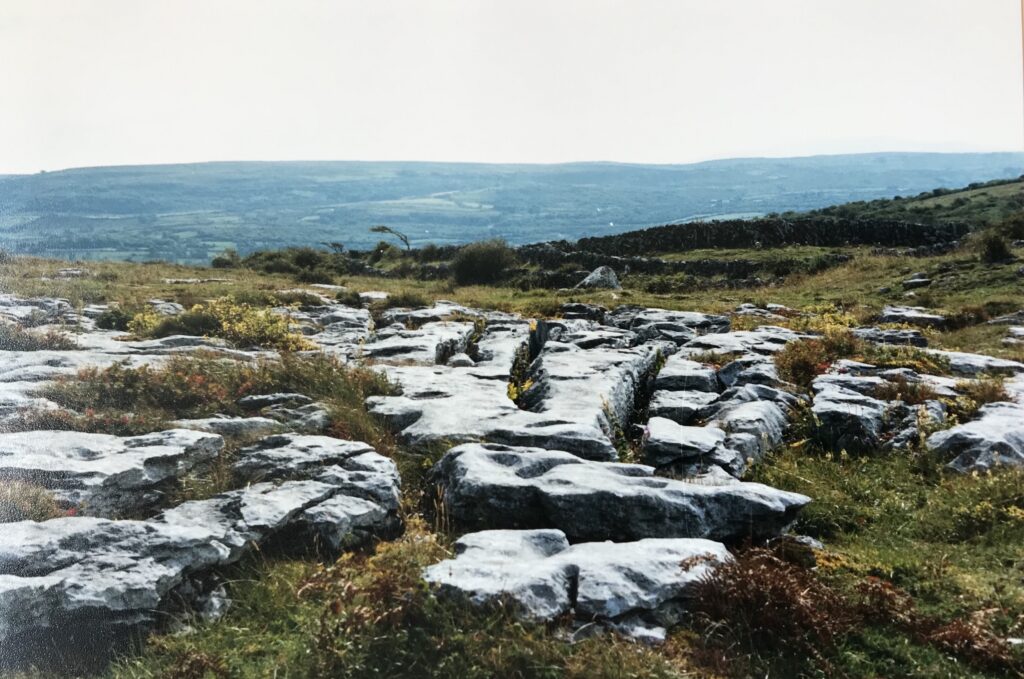
Limestone pavement on the Burren near Carron
My Degree in Development Studies was a perfect foundation for the career I’ve had in community and rural development in Britain. Ten years after DEV, I studied a Masters in Social Policy at LSE, which greatly enhanced my confidence to respond to statutory consultation on the many areas of Social Policy that affect our lives here.
From 2003 I specialised in work promoting sustainability: waste reduction, reuse, recycling, energy efficiency etc. For my own interest I’ve also attended courses on self-build houses, gaining a greater awareness of different construction methods and building materials for comestic properties. I’ve visited several homes built to “Passiv Haus” (Passive House) standards, super-insulated and with MVHR (Mechanical Ventilation Heat Recovery) to pre-warm incoming fresh air using heat recovered from stale air from kitchens and bathrooms. I’ve been greatly impressed by their annual energy bills of under £100!
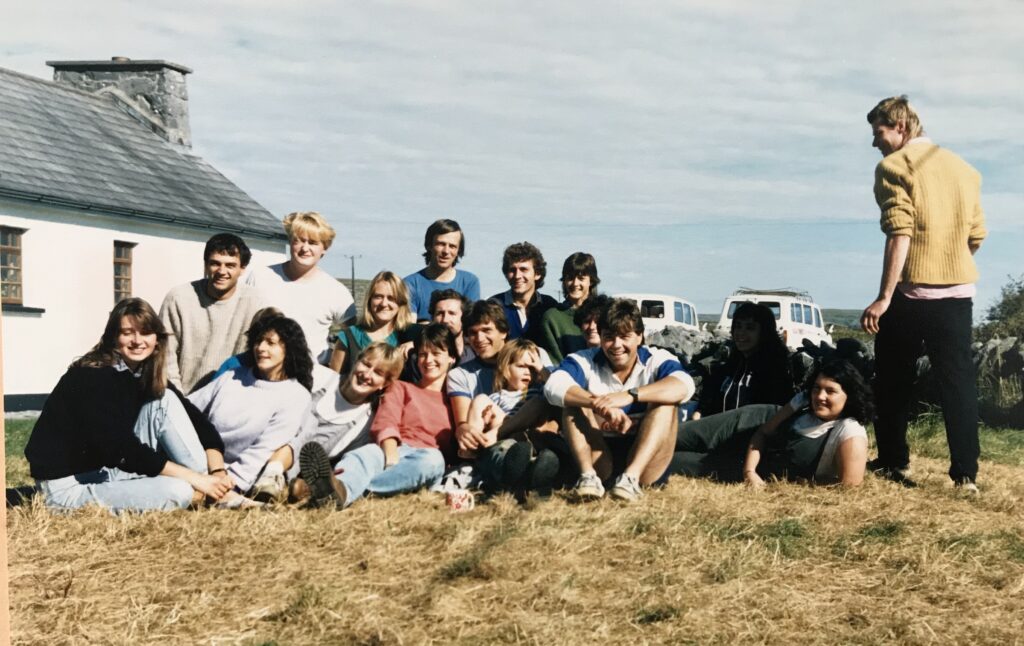
Dev students relaxing outside the University of Galway Field Station, Carron in the Burren, Co Clare 1983
I’ve chosen to work mainly in the not-for-profit sector, working with voluntary and community organisations at their interface with statutory and private sector organisations. The well-known phrase associated with early sustainability initiatives: “Think Global, Act Local” is an ever-present theme from my DEV studies onwards. A heartfelt thank you to all the Lecturers, administrators and fellow students in DEV!

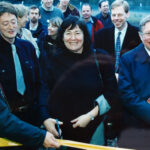
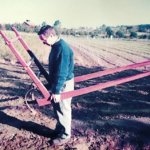
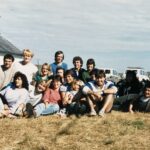
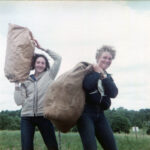

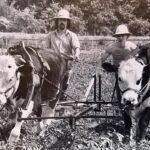
Hi Martin, your own email address is visible to you, not to anyone else. If you check using a private browsing window, or a different browser, you will see no email addresses are visible.